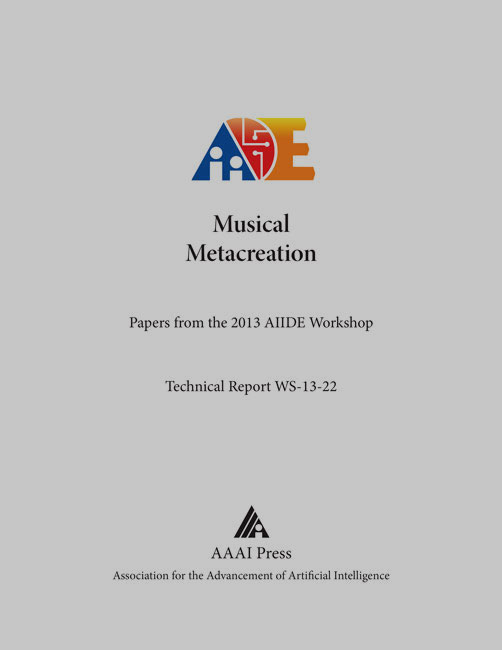Harmonic Navigator: A Gesture-Driven, Corpus-Based Approach to Music Analysis, Composition, and Performance
DOI:
https://doi.org/10.1609/aiide.v9i5.12658Keywords:
music, harmony, Markov models, genetic algorithms, power-law metricsAbstract
We present a novel, real-time system for exploring harmonic spaces of musical styles, to generate music in collaboration with human performers utilizing gesture devices (such as the Kinect) together with MIDI and OSC instruments / controllers. This corpus-based environment incorporates statistical and evolutionary components for exploring potential flows through harmonic spaces, utilizing power-law (Zipf-based) metrics for fitness evaluation. It supports visual exploration and navigation of harmonic transition probabilities through interactive gesture control. These probabilities are computed from musical corpora (in MIDI format). Herein we utilize the Classical Music Archives 14,000+ MIDI corpus, among others. The user interface supports real-time exploration of the balance between predictability and surprise for musical composition and performance, and may be used in a variety of musical contexts and applications.

